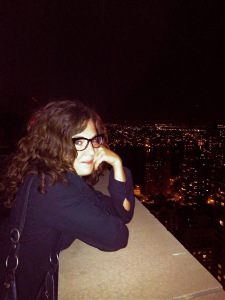Rain or Shine, It’s Health Promotion Time: The Lower East Side Girls Club Walk-A-Thon

Hunter College graduate and undergraduate nursing students Jing Shin, Tina Munzu, Darren Panicali and others at the Lower East Side Girls Club Walk-a-thon
This is a guest post by Darren Panicali, an undergraduate nursing student and the President of the Hunter-Bellevue chapter of the National Student Nurses Association (NSNA). Darren is also the Community Health Director of the Nursing Students’ Association of New York State (NSANYS).
On Saturday, May 11, 2013, a team of undergraduate and graduate Hunter-Bellevue nursing students participated in the Lower East Side Girls Club Walk-A-Thon. The rain might have brought the walk festivities indoors, but it sure didn’t rain on anyone’s parade! A vibrant health fair speckled with pink balloons, polka-dot ribbons and the smiles of dozens of tiara-donning princesses took place instead — all in celebration of the more than $37,000 in donations received by the club. The money will go towards health and nutrition programs for girls living in the historically underserved communities of the Lower East Side. Through the efforts of students, faculty, and administrators, the Hunter-Bellevue School of Nursing was able to proudly contribute over $1,100 to that sum.







